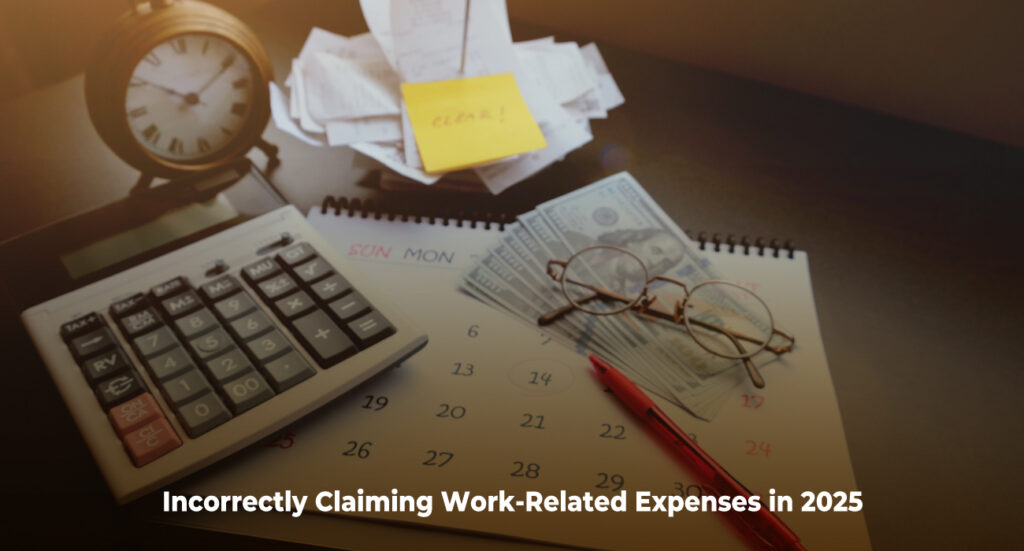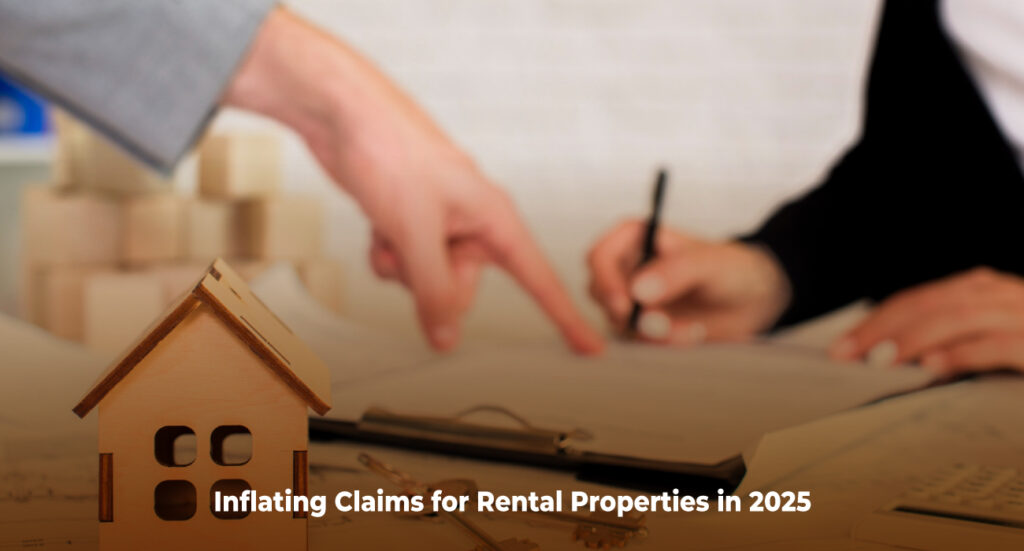Why You Shouldn’t Lodge Your Tax Return in July: Avoiding Common Tax Return Mistakes in 2024
Each year, thousands of Australian taxpayers rush to lodge their tax returns in the first two weeks of July, eager to access their refunds. However, this approach often backfires. In 2025, the Australian Taxation Office (ATO) is once again urging taxpayers to avoid lodging too early. Rushing to lodge before critical income details are pre-filled can lead to errors, missed income, and potential delays in refund processing.
By late July, most essential information—such as employment income, bank interest, dividends, private health insurance, and government payments—is automatically populated in your tax return by the ATO. Waiting for this pre-fill ensures greater accuracy, reduces the chance of amendments, and gives you peace of mind that your return has been lodged correctly. You can also use your myGov account or the ATO app to check whether your income statement is marked as ‘tax ready’ and if all relevant pre-fill data has been uploaded before submitting your return.

ATO Flag: Why You Should Wait to Lodge in July 2025
This year, the ATO has issued a clear warning to taxpayers: do not lodge your tax return until your income statement is marked as ‘tax ready’ and your return has been pre-filled. In 2024, over 142,000 taxpayers who lodged early had to amend their returns or had them adjusted by the ATO due to errors such as missing income.
ATO Assistant Commissioner Rob Thomson emphasised the importance of patience during tax time:
“We know doing your tax return is something to tick off your to-do list each year, but there’s no need to rush. The best time to lodge is from late July once everything is ready.”
The ATO collects data from employers, banks, health funds, and government agencies to automatically pre-fill your tax return—regardless of whether you lodge through a registered tax agent or on your own. Waiting for this process to complete reduces the risk of omissions and unnecessary amendments.
Taxpayers are encouraged to:
- Check if their income statement is marked ‘tax ready’ in myGov or the ATO app.
- Review the ATO’s occupation-specific deduction guides.
- Set up a strong digital identity and use the ATO app to stay secure online and monitor for suspicious activity.
By lodging at the right time, you avoid delays, reduce the risk of ATO audits or amendments, and help ensure a smoother tax season. At Investax, we’re here to help you get it right the first time.

Failing to include all income when lodging tax returns
If you have income from multiple sources, wait until all this information is pre-filled in your tax return before lodging. Many mistakes happen in July when people forget to include bank interest, dividends from shares, and payments from government agencies or private health insurers.
Common mistakes also include income from Employee Share Schemes managed by overseas payroll offices that may not be aware of Australian reporting standards, failing to report capital gains tax for the sale of shares, and incorrect assessments of the six-year exemption for Principal Place of Residence (PPOR) capital gains tax.
Most of this information will be automatically pre-filled by the end of July, making the process smoother and saving you time. Lodging early, before this information is available, increases the chance of errors in your tax return.
While it may be tempting to file your return early and get it out of the way, waiting a few weeks ensures you get it right.

Incorrectly Claiming Work-Related Expenses in 2025
The ATO continues to scrutinise work-related expense claims, and in 2025, particular attention is on working-from-home deductions. Many taxpayers make the mistake of copying last year’s figures without reviewing changes to the rules—this can trigger ATO reviews or result in disallowed claims.
For the 2024–25 financial year, the fixed rate method has increased to 70 cents per hour. This revised rate now includes costs such as electricity, gas, internet, mobile and home phone usage, and stationery. Importantly, if you use the fixed rate method, you can’t claim these items separately—they are all bundled into the hourly rate.
To use this method, you must:
- Keep a record of all hours worked from home throughout the year (estimates or samples are not sufficient).
- Maintain at least one supporting document (like a bill or invoice) for each type of expense included in the rate.
Alternatively, you can use the actual cost method, which allows you to claim the precise work-related portion of each expense, but requires more detailed records.
Regardless of the method you choose, remember the ATO’s three golden rules for any work-related deduction:
- You must have spent the money yourself and not been reimbursed.
- The expense must directly relate to earning your income.
- You must have a record to prove it.
Accurate record-keeping and an understanding of the updated rules are key to avoiding mistakes—and staying off the ATO’s radar this tax season.

Inflating Claims for Rental Properties in 2025: ATO’s Enhanced Scrutiny
The Australian Taxation Office (ATO) is intensifying its scrutiny of rental property tax returns in 2025, focusing on common mistakes and areas of concern. This heightened attention is supported by a significant budget increase: the ATO has been allocated nearly $999 million over the next four years. This funding boost aims to enhance the ATO’s enforcement capabilities, including the expansion of the Tax Avoidance Taskforce and the Shadow Economy Compliance Program, and the hiring of over a thousand new public servants.
Common Mistakes to Avoid
Rental property owners should be vigilant in avoiding frequent errors identified by the ATO:
- Apportioning Expenses for Mixed-Use Properties: For properties used both personally and for income generation, such as holiday homes rented out part-time, expenses must be apportioned accordingly. Only the portion of expenses related to income-producing use is deductible.
- Misclassification of Expenses: Distinguishing between repair expenses and capital expenses is crucial. Immediate deductions are allowable for general repairs, such as fixing a broken window. In contrast, capital improvements, like installing a new kitchen or initial repairs on a newly acquired property, must be depreciated over time.
- Overstating Deductions: Ensure that all claimed deductions are accurate and substantiated by proper documentation.
- Travel Deductions – Travel expenses related to residential rental properties (unless you’re in the business of property management) are not tax deductible.
- Inadequate Record-Keeping: Maintain comprehensive records, including receipts, invoices, and bank statements, detailing the supplier’s name, ABN, amount, nature of the expense, purchase date, and document date.
Key Considerations for 2025
- Interest Deductions: Only the interest on the loan portion used for the rental property is deductible. Loans used for both personal and rental purposes require careful apportioning of interest.
- Body Corporate Fees: Routine maintenance fees are deductible when incurred. Special purpose fund payments are deductible only when billed.
- Borrowing Expenses: These should be claimed over five years or the loan’s duration, whichever is shorter. Note that stamp duty (except in the ACT) should be added to the cost base and not claimed as a deduction while renting.
- Capital Expenses: Repairs can be claimed immediately, while capital improvements are depreciated over time, typically at 2.5% over 40 years. Proper classification of expenses is essential to avoid penalties.
- Property Availability: Generally, a property must be available for rent to claim ongoing costs as tax deductions. However, if your property is temporarily uninhabitable due to repairs or renovations, you can still claim deductions for certain costs incurred during this period, such as council rates and mortgage interest.
Given the ATO’s enhanced enforcement capabilities and focus on rental property claims, it’s imperative for property owners to ensure accuracy and compliance in their tax returns. If you’re uncertain about any aspects of your rental property deductions, consider consulting with a tax professional to navigate the complexities and avoid potential audits or penalties.
Final Consideration
As the ATO sharpens its focus and resources on compliance, particularly around work-related and rental property deductions, taxpayers must take extra care when preparing their 2025 returns. With increased audit funding and advanced data-matching tools, even small inaccuracies can lead to amended returns, delays in refunds, or potential penalties. Whether you’re claiming working-from-home expenses or reporting rental income, accurate records and a clear understanding of the current rules are essential. If you’re unsure, don’t leave it to chance—speak with a qualified tax professional to get it right the first time.
If you find yourself uncertain about your tax submissions or need help with your 2025FY tax return, contact Investax Group. Our experienced team is ready to assist you in navigating the tax process, ensuring compliance and helping you maximise your returns. Check out our tools and calculators to get a clear picture of your tax liability, and don’t forget to use our free checklist to gather all necessary documents.
Don’t let tax season overwhelm you—reach out to Investax Group today for professional guidance and support in achieving an accurate and stress-free tax return.
General Advice Warning
The material on this page and on this website has been prepared for general information purposes only and not as specific advice to any particular person. Any advice contained on this page and on this website is General Advice and does not take into account any person’s particular investment objectives, financial situation and particular needs.
Before making an investment decision based on this advice you should consider, with or without the assistance of a securities adviser, whether it is appropriate to your particular investment needs, objectives and financial circumstances. In addition, the examples provided on this page and on this website are for illustrative purposes only.Although every effort has been made to verify the accuracy of the information contained on this page and on our website, Investax Group, its officers, representatives, employees and agents disclaim all liability [except for any liability which by law cannot be excluded), for any error, inaccuracy in, or omission from the information contained in this website or any loss or damage suffered by any person directly or indirectly through relying on this information.





